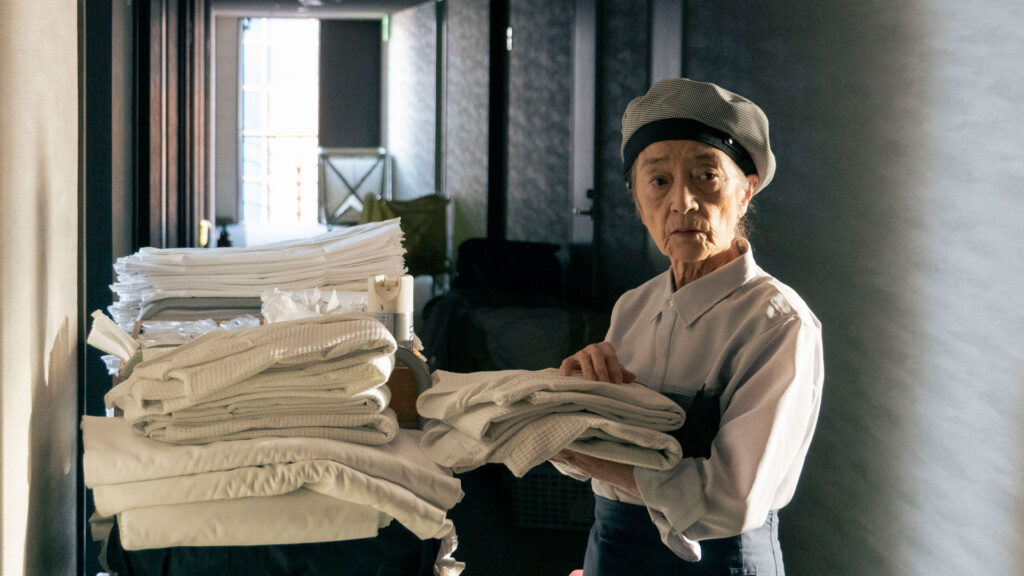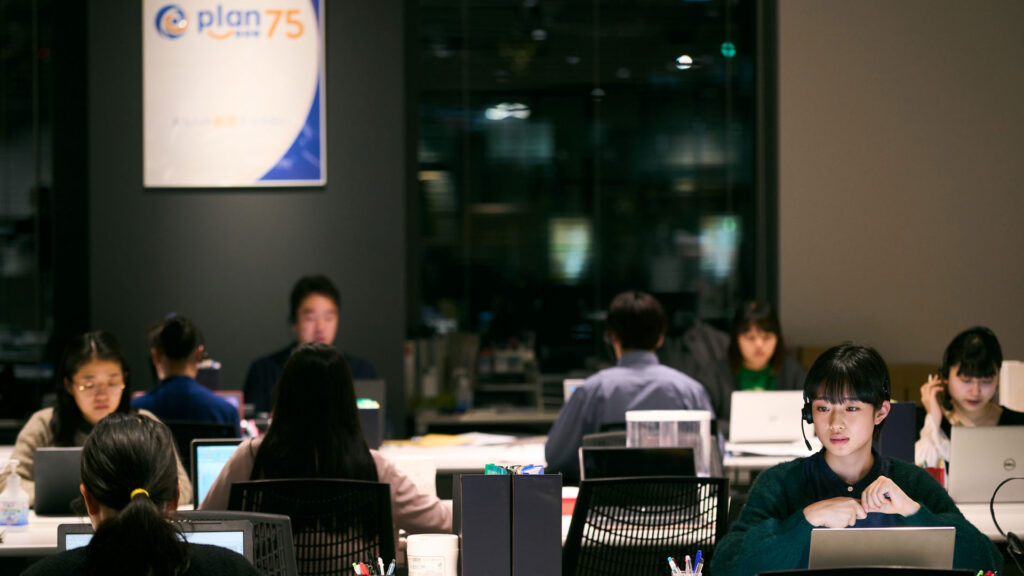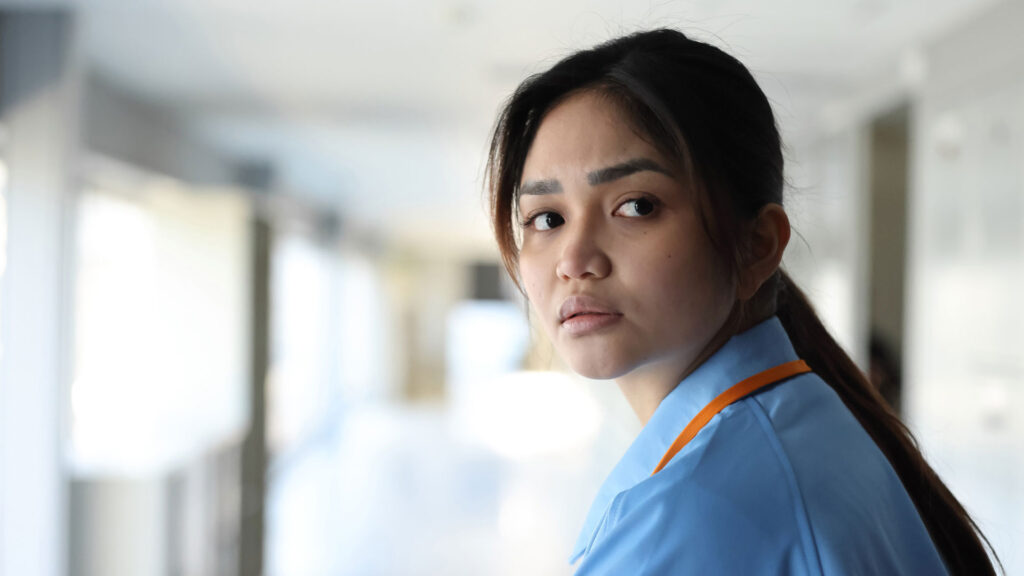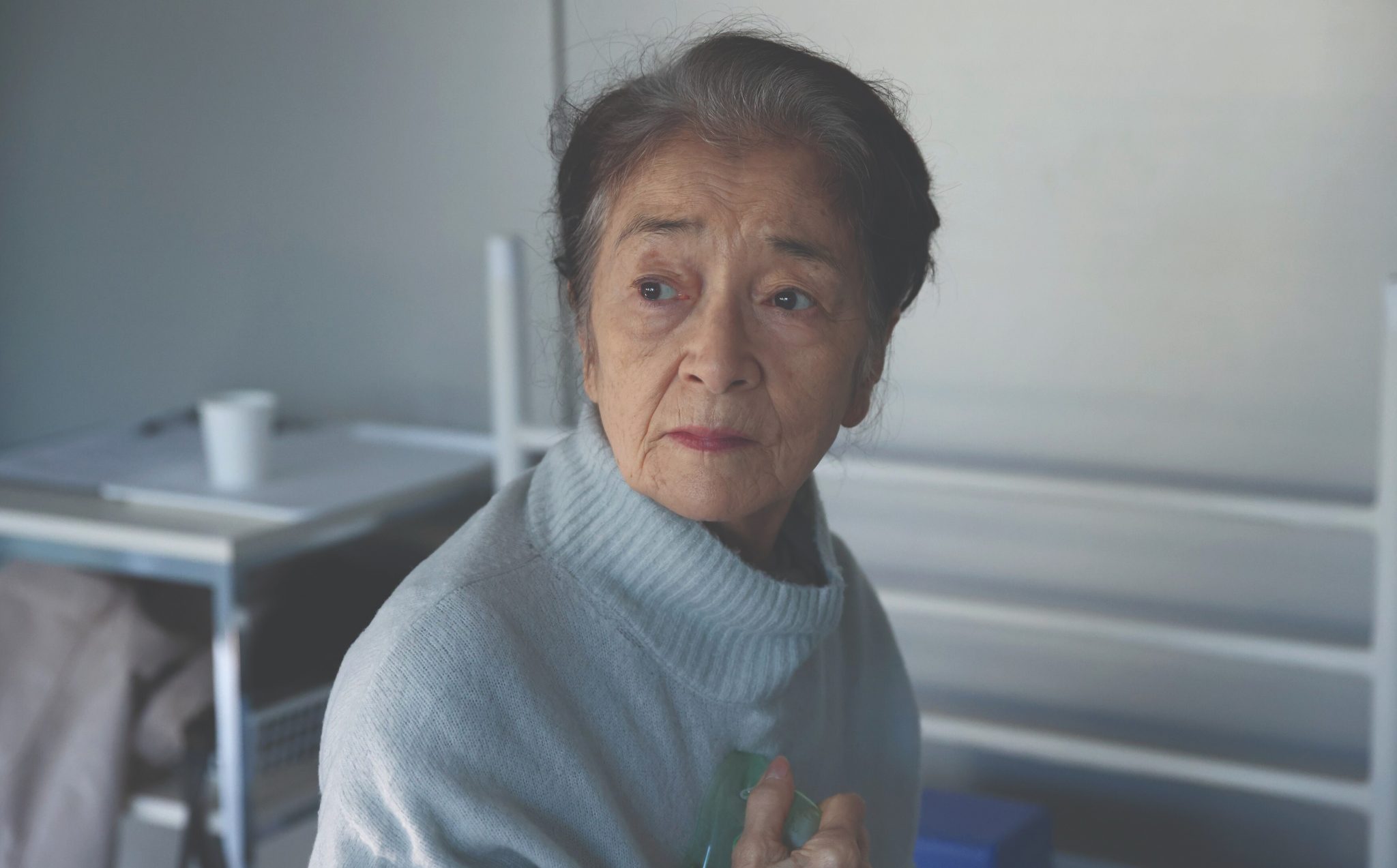A state-run death plan is offered to isolated elderly citizens in a new science fiction film which holds an uncomfortable mirror to the social atomisation of the present
Chie Hayakawa’s Plan 75 is an unusual film: fiction, but shot almost like a cinéma vérité documentary; sci-fi, but so naturalistic that it doesn’t really feel speculative at all. It is also perhaps the only film I’ve ever seen in which the central character is, effectively, a government policy: the titular Plan 75, which offers subsidised, voluntary euthanasia to Japan’s vast elderly population. From the age of 75, every Japanese citizen, in the world of the film, is entitled to sign up to the Plan – incentivised with such benefits as a free funeral, regular 15-minute counselling sessions, and a grant worth around $1000 – which can be spent on anything you like.
The idea is rooted in a real-life social problem: with a fertility rate of just 1.4 children per woman, and over 40 percent of people over 60, Japan’s ageing population is increasingly perceived as a debilitating economic burden. They are not, of course, the only ones: countries including Italy, Spain, and South Korea have fertility rates even lower than Japan’s; while in both the US and the UK it is increasingly clear that elderly people exercise disproportionate political power (whether as legislators, in the ‘gerontocratic’ US, or as a voting bloc with a perverse preference for a right-wing party who consistently deprioritise the interests of a younger generation, as in the UK).
It is into this context that Plan 75 strides, making the perhaps unfashionable case against a dominant politics that frequently pits generations in opposition to each other. In Hayakawa’s world, elderly people are stripped of any sort of welfare support until the norm begins to oblige them to opt for the Plan. In some scenes, Plan employees loot them of their belongings; in others, it is implied that the ashes of those who opt for the free funeral are ultimately sent to landfill. Michi, an ageing housekeeper at a hotel, develops a close relationship with her Plan 75 counsellor, although it is evident that the main purpose of these sessions is to help ensure that no-one quits the process before being euthanised. We are introduced to a world in which the fictional policy holds a mirror up to governments around the world who habitually marginalise and abuse those deemed economically ‘unproductive’, mining them for as much short-term profit as they can.

Still – some online commentators in Japan have felt it was exactly what their society needed. Hayakawa has even reported that of a group of 15 elderly women she spoke to while researching the film, most said they would welcome a real-life Plan 75. One can imagine that the response to the film would be much the same in the UK or US. Leaving oppositional-generational politics aside: euthanasia more usually raises its head in debates about the right to die with dignity, with stories of the grieving spouses of the terminally ill being put on trial for murder. A 2020 UK survey conducted by the Oxford Uehiro Centre for Practical Ethics found that 79 percent of its respondents would like to be given the option of euthanasia if they were dying, although the pre-emptive right to die is less often discussed. Who wouldn’t welcome the security of a state plan helping those who want it (so long as they actually do want it), to access a good death?
But it would be wrong to reduce Plan 75 to being, simply, a ‘euthanasia film’. The point is certainly not to meditate on the rights or wrongs of euthanasia as such. Even if some of what we see enacted is very, very wrong, that hardly rules out the possibility that the security and convenience of a government-run euthanasia plan could be the right choice, at least for some. This is a film, at its heart, about loneliness, about social alienation – about a society’s inability to see people as ends in themselves, and not just as economic means.

In the world of Plan 75, society is almost completely atomised, to a point where people can barely even recognise each other – certainly not across the generations. In early scenes, we follow Michi through a life almost completely devoid of anyone under the age of 70: she lives alone and is close only to her co-workers, fellow geriatric cleaners at the hotel who are eventually all made redundant because a guest complains about seeing seniors working. Michi doesn’t have any contact with family at all, while an elderly friend reports never having met her grandchildren.
They are not the only ones. Among the other characters the film follows are a Filipino care worker whose gravely ill five-year-old daughter is still in the Philippines with her father: as is not unusual for migrant workers, economic necessity has severed her from the family she is ostensibly working to support. Meanwhile, Plan 75 employee Hiromu realises that an applicant who has come to the programme on the day of his 75th birthday is in fact his uncle, who he hasn’t seen for over 20 years and who didn’t recognise him in the slightest.

At times, the sense of distance between the characters – of their struggling, and failing, to form real connections with each other – is poignant. We see Hiromu and his uncle, waving to each other through the distance of the night. There are the uncle and Michi, two strangers catching each other’s eyes through the crack of a door, as they both lie down with gas masks on in their adjacent rooms. Everyone in this world seems to have been locked into themselves; and everyone is trying to claw their way out. Plan 75 draws some of them, briefly, together. But then, for reasons built into the nature of the policy, it tears them apart once more.
Hayakawa does not make the argument for why euthanasia is bad. Rather, she is more interested in the implications of a society where people are denied the connections and support they need to function properly. In this context, everything will be bad – no end-of-life plan, however compassionate in principle, could ever be implemented humanely in practice. Until the more basic problem of social atomisation is addressed, the cynicism of the existing order of things will always trump the idealism of anything we might imagine to be better. To this extent, there is nothing speculative about Plan 75 whatsoever.
